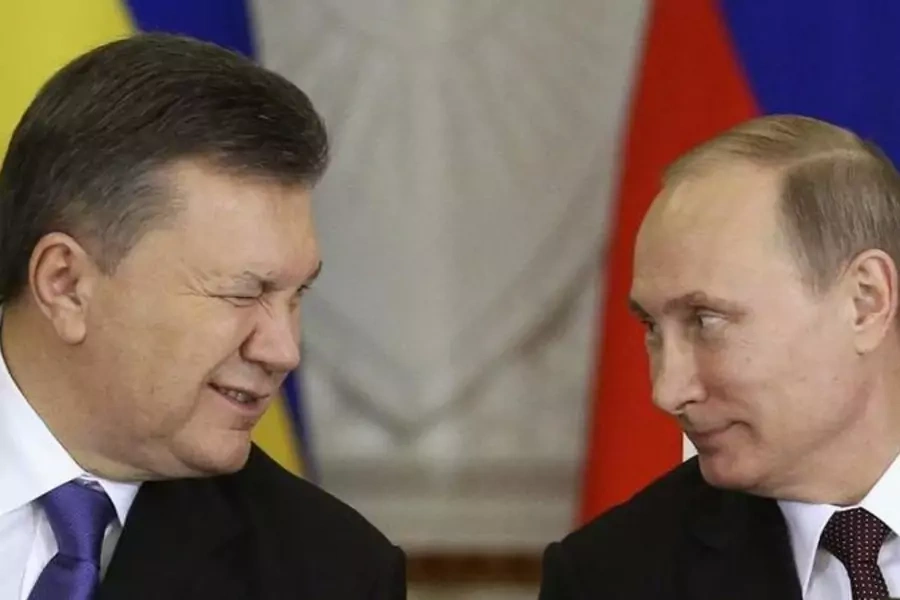Ukraine Offers Lessons for Russia’s 2024 Election Interference

Vladimir Putin’s illegal, aggressive, large-scale war on Ukraine is a horrific reminder of his deep-seated desire to attack and control the country. The Russian government has been fixated on reasserting control of Ukraine since the 2014 Maidan Revolution, when Ukrainians took to the streets to oust Kremlin-friendly dictator Viktor Yanukovych.
Yet this has also been an overlooked theme of Russian election interference in the United States, as the authors detail in a new issue brief for the Atlantic Council. For all the media attention on the domestic political dimensions, the Kremlin’s interference in the 2016 and 2020 presidential elections (and the 2018 midterms) included a significant focus on shaping U.S. policy toward Ukraine. As Putin indicates that he is more willing than ever to use violence to control Kyiv, American policymakers must prepare now for this influence effort to reemerge in 2024.
More on:
In 2014, Ukrainian citizens organized and mobilized in protest against the Yanukovych regime, and they used internet technologies to aid in those efforts—including a EuroMaidan Facebook page and popular Twitter accounts @EuroMaydan and @EuroMaydan_eng (the English-language version). Putin already viewed opposition movements as illegitimate, instead believing they must be covertly orchestrated by foreign powers, and this belief had been hardened by the “color revolutions” that swept former Soviet republics in the early 2000s. Hence, when Ukrainians mobilized in 2014, including with the use of Western social media platforms, the Kremlin saw foreign efforts to undermine its control of Ukraine.
Moscow’s burgeoning online disinformation efforts—initially focused on delegitimizing Russian oppositionists—turned their sights on the post-revolution government in Kyiv. The Russian security services created illegitimate “news” outlets to smear newly elected Ukrainian president Petro Poroshenko and his administration, as well as the Barack Obama administration supporting them—foremost, then Vice President Joseph Biden. For instance, a website called “South Front,” later revealed to be a front for the Russian Federal Security Service (FSB), ran an opinion article alleging that “the CIA had its hands all over” the Maidan Revolution. Ukraine served as a proving ground for tactics Russian intelligence agencies would eventually deploy to influence elections in the United States.
During the 2016 and 2020 elections, Ukraine was a key theme of Russia’s interference activities. Numerous Kremlin operatives had ties to Ukraine or to past Russian interference in Ukraine, such as Andriy Derkach, a Ukrainian parliamentarian, Russian intelligence agency academy graduate, and son of Ukraine’s one-time intelligence chief. Derkach took direction from the Kremlin to offer manipulated “evidence” of corruption between then Vice President Biden and Ukrainian President Poroshenko. In that vein, some of the disinformation propagated by Russia’s proxy and patronage network fabricated ideas of U.S.-Ukraine corruption. Even though Derkach and his circle were sanctioned by the U.S. Treasury Department and exposed for these activities—and despite Ukrainian authorities debunking these claims—members of Congress and President Trump himself parroted these narratives.
American policymakers should prepare now for the likelihood that Moscow’s interference in the 2024 U.S. election will have a considerable focus on Ukraine. The specifics depend on the next several months, but the Kremlin will attempt to exploit the situation no matter the outcome; it will likely be a part of the U.S. election debate.
To prepare for 2024, Congress and the executive branch must implement the legislative and regulatory reforms recommended in the Senate review of 2016 election interference, endorsed on a bipartisan basis. As it wrote, “Unclear laws regarding foreign advocacy, flawed assumptions about what intelligence activity looks like…and the freedom of expression at the root of our democratic society became an opportunity for Russian influence to hide in plain sight.” Congress should update legislation on foreign espionage, agents, and lobbying—most of which is rooted in Cold War-era thinking—to pre-posture for 2024. In tandem, the U.S. intelligence community should update its cyber and intelligence tradecraft to account for increased Kremlin use of dark money, obscure financial webs, money laundering, and proxy groups.
More on:
Policymakers and the intelligence community should also watch the Putin regime’s war on Ukraine and begin to identify any new cyber and information tactics. The 2020 election cycle demonstrated that the time-tested “active measures” tradecraft of the KGB era is still effective, and there is an immense risk that policymakers will fight the last war, so to speak, in assuming the Russian government will not employ new interference tactics. Already, for example, the Kremlin has used the Lukashenko regime in Belarus to launch cyber and information operations against Ukraine in service of its illegal war; Moscow could use those kinds of proxies in the future.
Finally, the United States should continue and intensify the practice of public intelligence disclosures of Russian covert influence activities, where possible. The U.S., United Kingdom, and Ukrainian governments, among others, publicized several intelligence findings in recent weeks, especially in the leadup to Putin’s illegal attack on Ukraine, to expose Russian activities. This drew attention to the Russian government’s activities, worked to undermine Russian deniability (for example, concerning the use of undercover Russian Foreign Intelligence Service (SVR) operatives), and also provided information to social media and civil society organizations in the process. Notably, these recent disclosures were made far faster than even previous ones, with turnarounds occurring seemingly in a matter of weeks if not days. The U.S. intelligence community should continue this pattern and build on its 2016, 2018, and 2020 election track records to keep quickly exposing Russian election interference efforts where it is possible to protect sources and methods in the process.
The through lines from Ukraine’s revolutions to Russia’s efforts to interfere in the U.S. democratic system are clear. For the White House, Capitol Hill, and the interagency, now is the time to apply lessons learned from Ukraine and the 2016 election interference.
Gavin Wilde (@gavinbwilde) is a non-resident fellow at Defense Priorities and a former director for Russia, Baltic, and Caucasus affairs at the National Security Council.
Justin Sherman (@jshermcyber) is a fellow at the Atlantic Council’s Cyber Statecraft Initiative.
 Online Store
Online Store